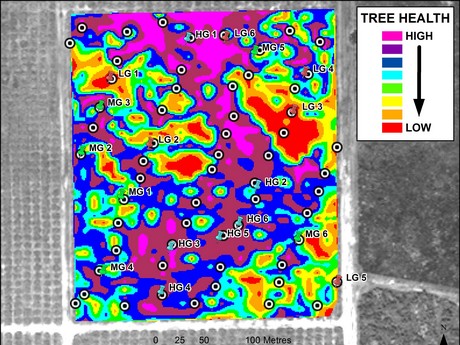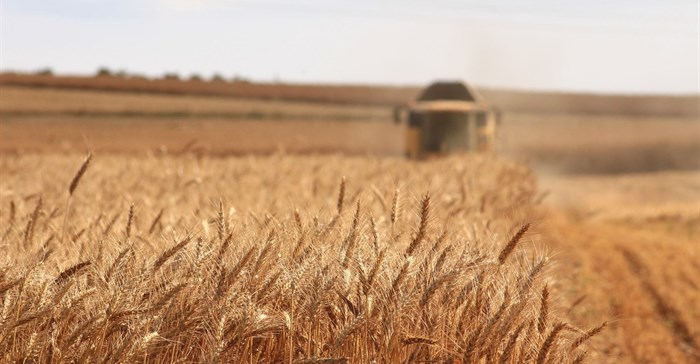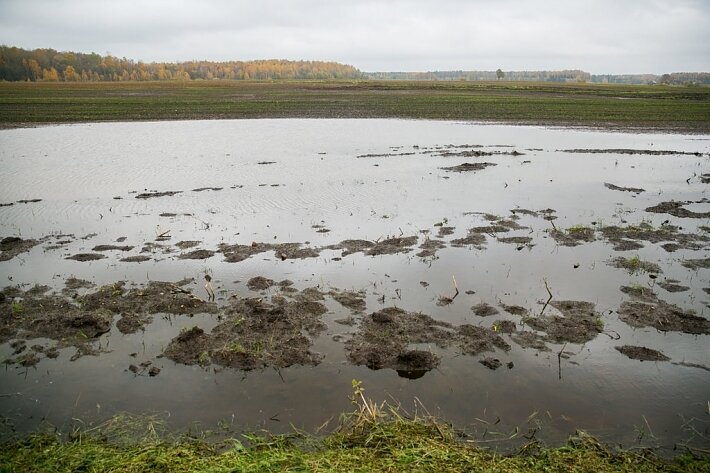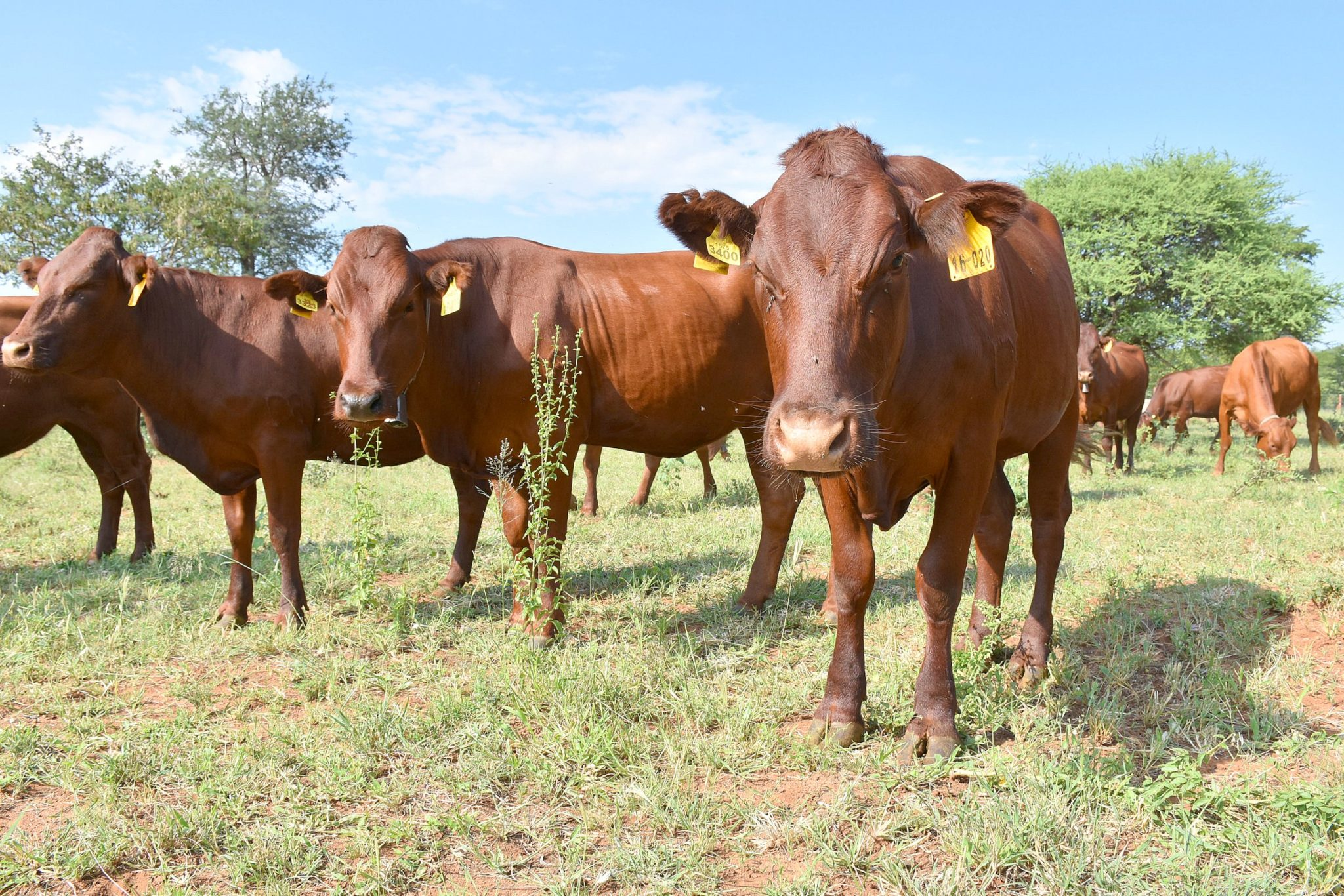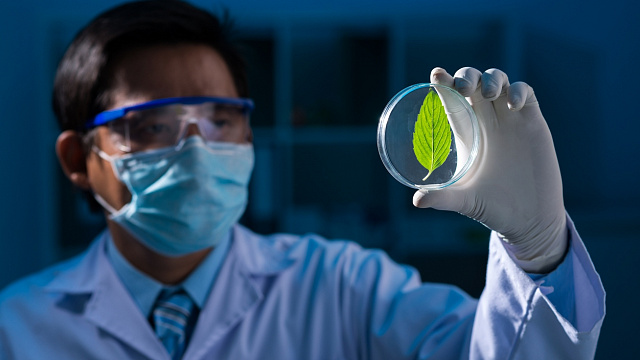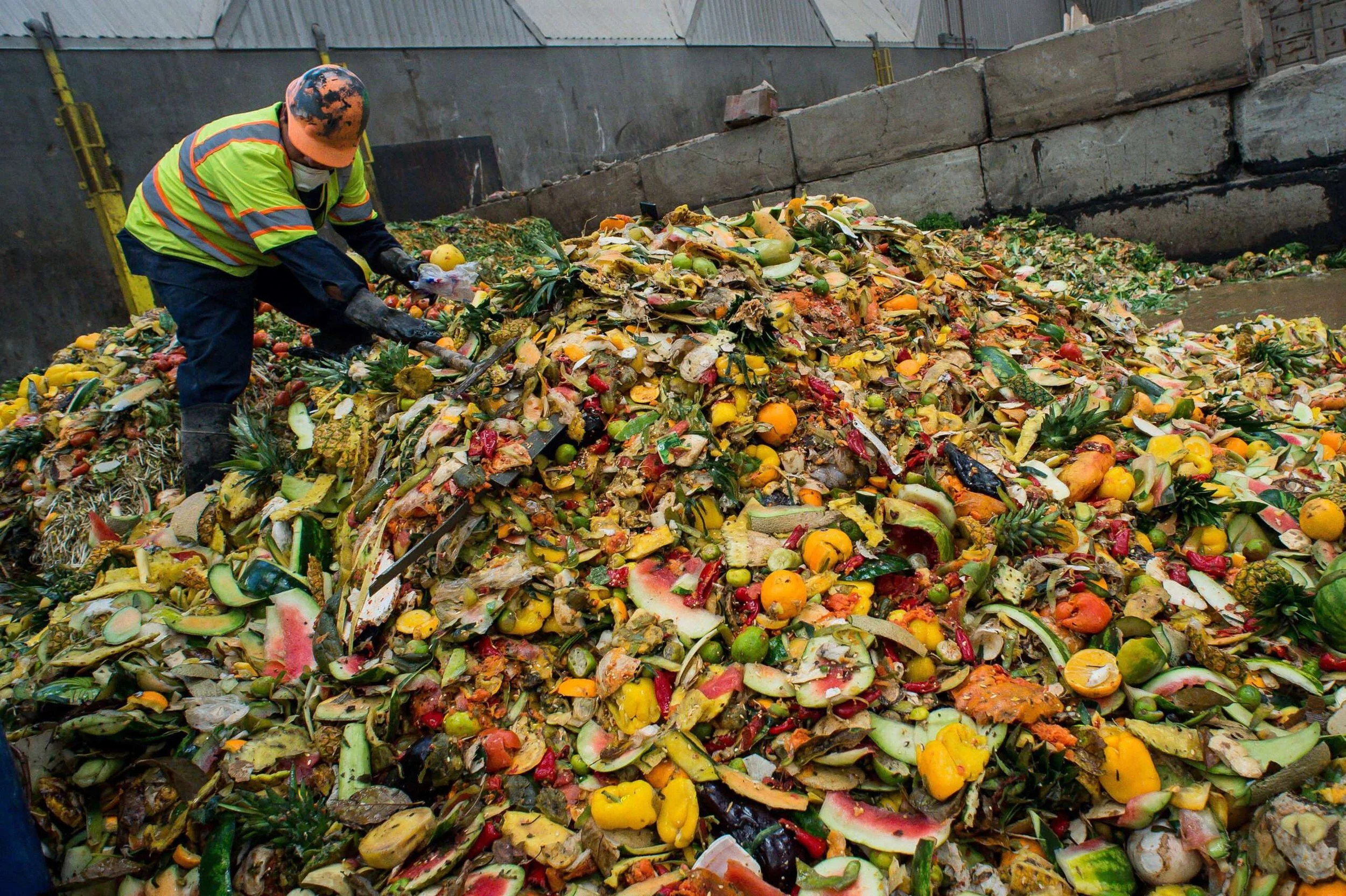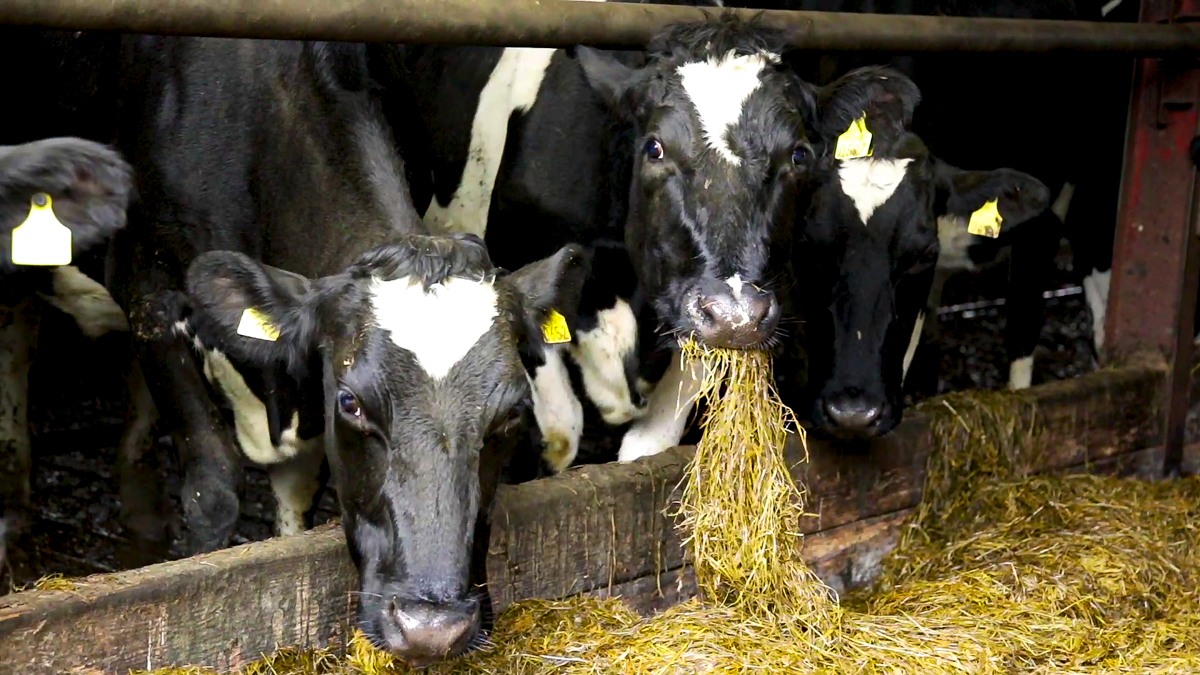Researchers and Northern Territory mango growers are combining high-resolution satellite imagery with data from hand-held fruit-scanning guns to better map variations in tree health, crop yield and fruit maturity.

If successful, the results could help growers more easily determine optimum picking times, and ensure the most efficient use of labour.

The trial research, which is supported through Horticulture Innovation Australia as part of the Federal Government’s Rural R&D for Profit program, is taking place across two Northern Territory farms.

Horticulture Innovation Australia Chief Executive, John Lloyd, said the application of the Near Infrared Spectroscopy (NIRS) gun – which measures fruit dry matter content, and therefore maturity – with satellite imagery is an exciting prospect.
“Now the Top End mango season is in full swing, researchers are gathering vital ground and satellite data that could make future harvests a little easier in the not-too-distant future.” he said.
Mr Lloyd said crop monitoring tools such as the NIRS gun and satellite technology are evolving rapidly. As such, this trial provides a unique opportunity to not only integrate these technologies for more comprehensive results, but also to ensure the Australian mango industry ‘keeps up with the Jones’s’ in terms of evaluating and adopting new technologies.
“There’s a huge potential for efficiencies through this research. Growers could save time and money by easily directing pickers to the most mature, highest yielding areas of their farms just by looking at a map,” he said. “The potential is also there to more accurately predict yields weeks before harvest to help guide marketing decisions and address any weak spots in crops prior to the season kicking off.”
Grower Tou Saramat Ruchkaew, who has had the researchers on her farm the past three weeks, said the potential for efficiencies is exciting: “If we could predict our production we would be able to plan everything: ordering boxes, transport, telling suppliers and organising labour. At the moment we have to respond on the spot.”
Fellow grower and trial site owner Martina Matzner said she is highly supportive of bringing new ideas to horticultural research on farms: “Using this sort of modern technology could make farming a more attractive business to work in – and I want to be part of that.”
The research combines the collaborative efforts of co-investors the University of New England (UNE) and Central Queensland University (CQU), with input from the Northern Territory Government, growers and the Australian Mango Industry Association.
CQU Professor Kerry Walsh, who has conducted extensive work developing the NIRS gun technology, said the research provides a taste of what is yet to come: “We are really only scratching the surface. This latest development is an easy-to-review data map that hasn’t previously been available to farmers. Next, we’ll look to relate differences to field variables and expand into other crops, including avocados.”
Project leader, UNE Associate Professor Andrew Robson, said this trial complements a national initiative that is investigating a range of technologies, including satellite imagery, as accurate tools for mapping tree health, yield, quality, pest and disease across a number of tree crops including mango, avocado, macadamia and banana.
”We’re happy to arm Australian horticulture growers with NIRS satellites and guns if we can demonstrate that these technologies can improve productivity as well as on-farm efficiencies,” he said.
Source - http://www.freshplaza.com
 If successful, the results could help growers more easily determine optimum picking times, and ensure the most efficient use of labour.
If successful, the results could help growers more easily determine optimum picking times, and ensure the most efficient use of labour.
 The trial research, which is supported through Horticulture Innovation Australia as part of the Federal Government’s Rural R&D for Profit program, is taking place across two Northern Territory farms.
The trial research, which is supported through Horticulture Innovation Australia as part of the Federal Government’s Rural R&D for Profit program, is taking place across two Northern Territory farms.
 Horticulture Innovation Australia Chief Executive, John Lloyd, said the application of the Near Infrared Spectroscopy (NIRS) gun – which measures fruit dry matter content, and therefore maturity – with satellite imagery is an exciting prospect.
“Now the Top End mango season is in full swing, researchers are gathering vital ground and satellite data that could make future harvests a little easier in the not-too-distant future.” he said.
Mr Lloyd said crop monitoring tools such as the NIRS gun and satellite technology are evolving rapidly. As such, this trial provides a unique opportunity to not only integrate these technologies for more comprehensive results, but also to ensure the Australian mango industry ‘keeps up with the Jones’s’ in terms of evaluating and adopting new technologies.
“There’s a huge potential for efficiencies through this research. Growers could save time and money by easily directing pickers to the most mature, highest yielding areas of their farms just by looking at a map,” he said. “The potential is also there to more accurately predict yields weeks before harvest to help guide marketing decisions and address any weak spots in crops prior to the season kicking off.”
Grower Tou Saramat Ruchkaew, who has had the researchers on her farm the past three weeks, said the potential for efficiencies is exciting: “If we could predict our production we would be able to plan everything: ordering boxes, transport, telling suppliers and organising labour. At the moment we have to respond on the spot.”
Fellow grower and trial site owner Martina Matzner said she is highly supportive of bringing new ideas to horticultural research on farms: “Using this sort of modern technology could make farming a more attractive business to work in – and I want to be part of that.”
The research combines the collaborative efforts of co-investors the University of New England (UNE) and Central Queensland University (CQU), with input from the Northern Territory Government, growers and the Australian Mango Industry Association.
CQU Professor Kerry Walsh, who has conducted extensive work developing the NIRS gun technology, said the research provides a taste of what is yet to come: “We are really only scratching the surface. This latest development is an easy-to-review data map that hasn’t previously been available to farmers. Next, we’ll look to relate differences to field variables and expand into other crops, including avocados.”
Project leader, UNE Associate Professor Andrew Robson, said this trial complements a national initiative that is investigating a range of technologies, including satellite imagery, as accurate tools for mapping tree health, yield, quality, pest and disease across a number of tree crops including mango, avocado, macadamia and banana.
”We’re happy to arm Australian horticulture growers with NIRS satellites and guns if we can demonstrate that these technologies can improve productivity as well as on-farm efficiencies,” he said.
Source - http://www.freshplaza.com
Horticulture Innovation Australia Chief Executive, John Lloyd, said the application of the Near Infrared Spectroscopy (NIRS) gun – which measures fruit dry matter content, and therefore maturity – with satellite imagery is an exciting prospect.
“Now the Top End mango season is in full swing, researchers are gathering vital ground and satellite data that could make future harvests a little easier in the not-too-distant future.” he said.
Mr Lloyd said crop monitoring tools such as the NIRS gun and satellite technology are evolving rapidly. As such, this trial provides a unique opportunity to not only integrate these technologies for more comprehensive results, but also to ensure the Australian mango industry ‘keeps up with the Jones’s’ in terms of evaluating and adopting new technologies.
“There’s a huge potential for efficiencies through this research. Growers could save time and money by easily directing pickers to the most mature, highest yielding areas of their farms just by looking at a map,” he said. “The potential is also there to more accurately predict yields weeks before harvest to help guide marketing decisions and address any weak spots in crops prior to the season kicking off.”
Grower Tou Saramat Ruchkaew, who has had the researchers on her farm the past three weeks, said the potential for efficiencies is exciting: “If we could predict our production we would be able to plan everything: ordering boxes, transport, telling suppliers and organising labour. At the moment we have to respond on the spot.”
Fellow grower and trial site owner Martina Matzner said she is highly supportive of bringing new ideas to horticultural research on farms: “Using this sort of modern technology could make farming a more attractive business to work in – and I want to be part of that.”
The research combines the collaborative efforts of co-investors the University of New England (UNE) and Central Queensland University (CQU), with input from the Northern Territory Government, growers and the Australian Mango Industry Association.
CQU Professor Kerry Walsh, who has conducted extensive work developing the NIRS gun technology, said the research provides a taste of what is yet to come: “We are really only scratching the surface. This latest development is an easy-to-review data map that hasn’t previously been available to farmers. Next, we’ll look to relate differences to field variables and expand into other crops, including avocados.”
Project leader, UNE Associate Professor Andrew Robson, said this trial complements a national initiative that is investigating a range of technologies, including satellite imagery, as accurate tools for mapping tree health, yield, quality, pest and disease across a number of tree crops including mango, avocado, macadamia and banana.
”We’re happy to arm Australian horticulture growers with NIRS satellites and guns if we can demonstrate that these technologies can improve productivity as well as on-farm efficiencies,” he said.
Source - http://www.freshplaza.com


